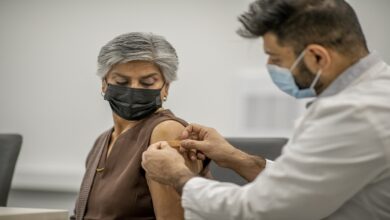US launches study mixing COVID-19 booster vaccine regimens

The National Institutes of Health (NIH) has initiated an early-stage study testing mixed COVID-19 booster vaccine schedules among fully vaccinated adults. The goal is to understand safety and immune responses following mixed boosted regimens, should booster vaccines become necessary.
The NIAID-funded study involves some 150 people who already received one of the authorized COVID-19 vaccine regimens developed by Pfizer, Moderna or Johnson & Johnson.
MODERNA SEEKS FULL FDA APPROVAL FOR COVID-19 VACCINE
“Although the vaccines currently authorized by the U.S. Food and Drug Administration offer strong protection against COVID-19, we need to prepare for the possibility of needing booster shots to counter waning immunity and to keep pace with an evolving virus,” Dr. Anthony S. Fauci, director of the National Institute of Allergy and Infectious Diseases (NIAID), said in a release posted Tuesday. “The results of this trial are intended to inform public health policy decisions on the potential use of mixed vaccine schedules should booster doses be indicated.”
Each vaccine group will consist of about 25 people aged 18-55, and some 25 people aged 56 and older. Three to five months after participants are fully vaccinated, they will receive a single dose of Moderna’s booster vaccine. Additional study arms could be added as vaccines are granted FDA emergency approval or variant-specific vaccines become ready for evaluation, according to the NIH.
CLICK HERE FOR FULL CORONAVIRUS COVERAGE
Those not yet vaccinated can join the trial in a separate group. Researchers intend to administer Moderna’s two-dose COVID-19 vaccine to this group, and 12-20 weeks later, follow up with a booster dose.
Trial investigators will follow up with all study participants for one year after their final vaccination, checking for safety and potential side effects. Researchers will ask participants to submit blood samples to track immune responses against circulating and emerging virus variants. Should any COVID-19 infections arise, researchers intend to sequence samples to determine if variants are behind the infection.
The NIH expects preliminary results in late summer 2021.
Source link




